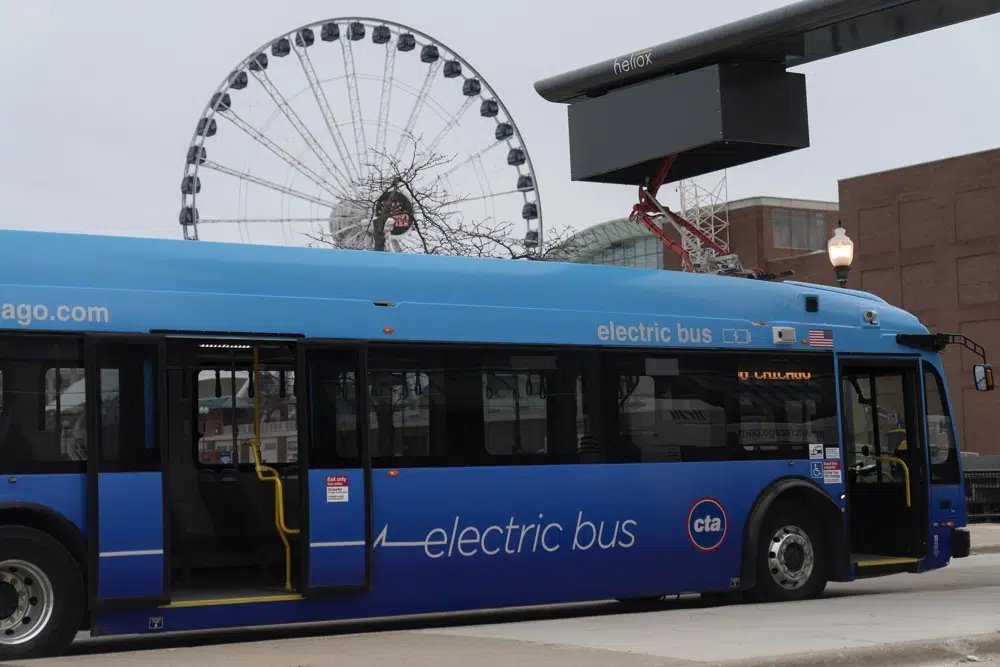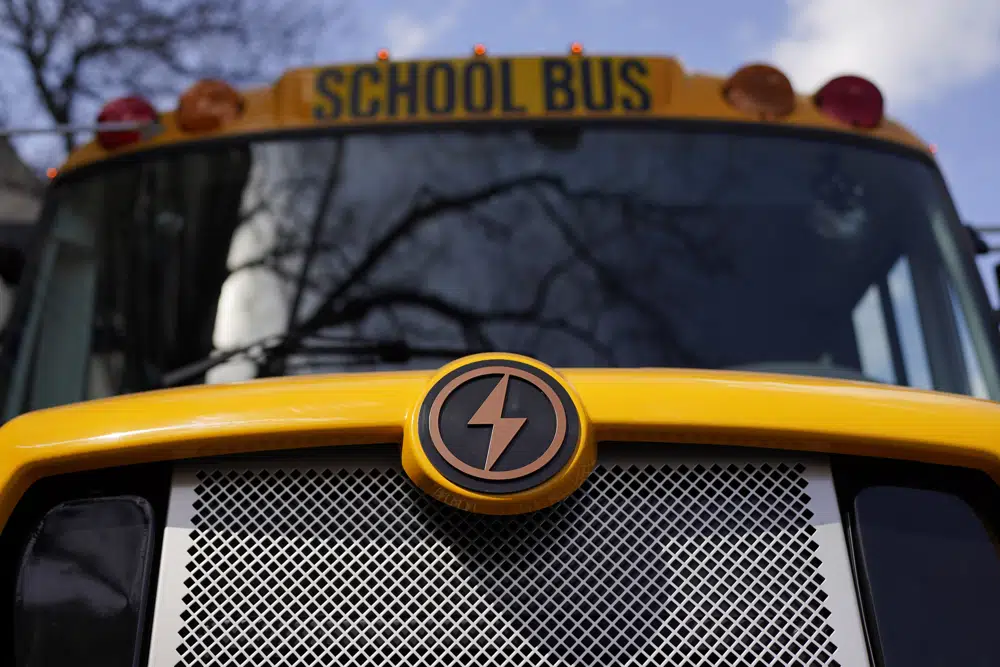The recent announcement by the U.S. Department of Transportation regarding the allocation of nearly $1.7 billion in grants for the purchase of zero- and low-emission buses is a significant step towards addressing the pressing issue of climate change.
The distribution of these funds to transit projects in 46 states and territories is a commendable effort by the government to support the transition to a cleaner and more sustainable transportation system.
With this substantial financial support, transit agencies, as well as state and local governments, will have the opportunity to procure a total of 1,700 buses, of which almost half will possess zero carbon emissions.
This will have a remarkable impact on reducing greenhouse gas emissions and improving air quality in communities across the nation.
Additionally, the utilization of U.S.-built buses not only bolsters the local economy but also contributes to the growth and development of the domestic green technology industry.
The funding for these grants is derived from the 2021 bipartisan infrastructure bill, a significant legislative achievement spearheaded by President Joe Biden.
This allocation of resources highlights the Biden administration’s commitment to tackling climate change and prioritizing the widespread adoption of electric vehicles, particularly in educational institutions and public transportation systems.
By encouraging the incorporation of electric buses into school fleets and public transit networks, the government aims to mitigate the detrimental effects of climate change and protect the future of our planet.

Transportation Secretary Pete Buttigieg aptly summarized the importance of this initiative during his call with reporters, stating that “Every day, millions of Americans climb aboard over 60,000 buses to get to work, to school, doctor’s appointments, everywhere they need to be.” Indeed, buses are an essential mode of transportation for millions of individuals, and their increased electrification will have far-reaching benefits.
The commitment demonstrated by the Department of Transportation through these grants represents a significant and unparalleled investment in promoting the deployment of modern and cleaner buses.
By supporting the transition to zero-emission and low-emission vehicles, the government is setting a forward-thinking example for other countries and institutions around the world. This commitment not only demonstrates a dedication to environmental stewardship but also presents an opportunity for economic growth and job creation in the clean energy sector.
It is essential to acknowledge the positive impact of these grants on the lives of everyday Americans. Cleaner buses will undoubtedly contribute to a healthier environment, improving public health and well-being.
Reduced emissions will decrease air pollution, leading to lower rates of respiratory diseases and other health issues associated with poor air quality. Moreover, the wider adoption of zero-emission buses will contribute to the overall decarbonization of the transportation sector, helping the nation achieve its climate goals and transitioning towards a sustainable future.
In conclusion, the recent allocation of $1.7 billion in grants by the U.S. Department of Transportation for purchasing zero- and low-emission buses is an exemplary step towards combating climate change and promoting sustainable transportation systems.
These grants demonstrate the government’s commitment to environmental stewardship and economic growth, while simultaneously improving public health and reducing greenhouse gas emissions. As we continue on the path towards a greener future, initiatives like these serve as an inspiration and reminder of the critical role governments play in driving positive change.
In a pioneering move towards transforming the American public transport system, the Biden administration recently announced an extensive round of grants for buses and supporting infrastructure. With a comprehensive investment 50 billion over the forthcoming three years.
This essay explores the far-reaching implications of these grants, highlighting their potential to enhance public health, simplify bus maintenance, and address the growing demand for sustainable transportation alternatives. Moreover, we will delve into some key examples, such as the allocation of funds to the Seattle area, Washington, D.C., Iowa City, and the Seneca Nation, underscoring the broad geographic reach of this transformative initiative.
Promoting Public Health and Environmental Sustainability
One of the paramount goals of the Biden administration’s grant funding is to mitigate the adverse impact of diesel exhaust on public health and the environment.

Historically, conventional buses fueled by diesel have contributed significantly to air pollution by emitting harmful pollutants and toxic particles into the atmosphere. By transitioning to electric battery buses, these grants aim to curtail these emissions and improve air quality effectively.
The adoption of electric buses will play a crucial role in reducing greenhouse gas emissions and their detrimental effects on climate change. The elimination of diesel exhaust not only benefits the immediate urban environments but also contributes to the global efforts towards achieving carbon neutrality.
The ambitious vision of a cleaner, healthier future is clearly reflected in the government’s commitment to investing substantial sums in sustainable transport infrastructure.
Efficiency and Ease of Maintenance
Beyond the environmental benefits, the decision to invest in electric battery buses also addresses the practical concerns associated with traditional bus maintenance.
Electric buses are widely recognized for their superior performance, cost-efficiency, and reduced operational complexity. By leveraging advanced technologies and streamlined mechanics, battery-powered buses offer a compelling alternative to their diesel counterparts.
These electric buses require less frequent maintenance, resulting in decreased downtime and improved overall efficiency. The more straightforward operational requirements significantly contribute to a smoother and more reliable public transportation system.
The prospect of reducing maintenance costs and optimizing bus operations presents an immense opportunity for cities across the nation to enhance their transit networks and elevate commuter experiences.
An Unprecedented Demand for Funding
The staggering demand for funding, as evidenced by the 475 project proposals totaling approximately $8.7 billion, underscores the pressing need for investment in the transportation sector.
The overwhelming response from various municipalities highlights the urgency to modernize and transform public transport infrastructure, both in metropolitan areas and underserved regions. It substantiates the fact that public transport initiatives are being recognized as a critical component of a sustainable future.
Geographic Diversity: A National Initiative
The grant allocation not only targets major U.S. cities but also extends beyond metropolitan areas to include smaller communities. The Seattle area, for instance, has been granted 104 million to convert a bus garage into an electric facility and acquire roughly 100 electric battery buses.
The significance of the grants is further highlighted by their impact on smaller locales. For instance, Iowa City, Iowa, and the Seneca Nation in Western New York have also received grants underlining the inclusivity and expansive nature of this unprecedented initiative.
By transcending the boundaries of major urban centers, the potential for sustainable development is extended to communities of all sizes.

Conclusion
The Biden administration’s announcement of the second round of grants for buses and supporting infrastructure represents a significant stride towards fostering environmentally responsible public transport. The infusion of $3.3 billion in grant funding aligns with the administration’s vision of reducing greenhouse gas emissions, improving public health, and supporting communities across America.
By embracing electric battery buses as a cleaner and more efficient alternative to diesel, the government is setting the stage for sustainable transportation systems.
Furthermore, the grants’ geographic diversity underscores the holistic nature of this endeavor, reaching both major cities and smaller communities. The inclusion of Iowa City, the Seneca Nation, and many others highlights the commitment to supporting sustainable development throughout the nation.
As we look ahead, the projected $5 billion additional investment over the next three years promises to catalyze a comprehensive transformation of the American public transport sector. The positive impact of these grants will not only improve air quality and public health but also invigorate local economies and inspire further innovative solutions for a sustainable future.
Through these measures, the Biden administration has paved the way for a more efficient, cleaner, and integrated public transportation system in the United States.
